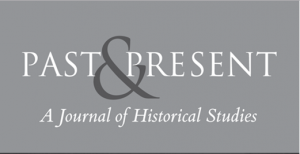Received from Dr. Craig Whittall
Key Details
Colonies, Camps and Captive Spaces of Empire Workshop
Date: 2nd July 2024
Location: London
Event Overview
This interdisciplinary workshop brings together two convergent, but not yet connected, fields of colonial history – historical practices of domestic and agricultural labour ‘colonies’, which embodied many of the hallmarks of colonialism, and the coercive and captive spaces of overseas empires in which forms of colonial power were put into direct material practice, namely colonial concentration camps, penal colonies and reformatory/residential schools.
These two highly interdisciplinary traditions of scholarship have yet to be brought into productive alignment. On the one hand, ‘domestic’ colonies, labour camps, and other disciplinary reformatories have been explored by researchers such as Barbara Arneil (2017), John Field (2013) and, in the European context, Stephen Toth (2019). The development of ‘imperial’ equivalents of these institutions in European empires has been explored by Clare Anderson (2000, 2018) and her major ‘Carceral Archipelago’ European Research Council project. The history of colonial concentration camps is a relatively new area of focus that is rapidly expanding, led by Aidan Forth (2017, 2024), Elizabeth van Heyningen (2013), Jonas Kreienbaum (2019), and David Olusoga and Casper Erichsen (2011)
Guest speakers: Barbara Arneil and Aidan Forth
Political scientist Barbara Arneil has offered a new way to think through instances of the colony as an institution – arguing that ‘domestic’ colonies operated according to three fundamental principles: segregation; agrarian labour; and the notion of the ‘improvement’ of the people who live within. She has also proposed a distinction between colonialism and imperialism as forms of power, centred on colonialism’s invasive drive to coercively reshape the self-understanding, lives and characters of individuals and communities from the inside out.
As we think about the use of segregated spaces and coercive control in modern European empires, attention turns quickly to the example of the concentration camp. Historian Dr Aidan Forth has comprehensively surveyed the use of concentration camps, broadly conceived, throughout imperial and world history. His first book examined the early use of camps in Victorian South Africa and South Asia, while his forthcoming work traces connections between concentration camps, refugee camps, and related institutions like workhouses, penal colonies, and residential schools throughout world history.
We are thrilled to welcome both Professor Arneil and Dr Forth to this workshop.
Call for participants
We are looking for scholars with any research interests that fit broadly within the description of ‘colonies, camps and captive spaces of empire’. You may be:
- an historian with a relevant case study to introduce to the group
- a political/legal theorist examining how these institutions developed, their intellectual roots or their impacts and legacies today
- a geographer/architect with interest in the distinctive separation and use of space, or material form of such spaces
- a culture/media scholar concerned with the representations of these spaces in historical or present-day contexts
- none of the above, but with a research agenda that speaks to this topic
To express your interest in participating, please use complete this workshop registration form.
The deadline for expressions of interest is Friday 24 May. Participants will be contacted by Sunday 2 June.
Travel support fund
The history journal Past and Present has kindly agreed to co-fund some travel costs for PhD students and early career researchers attending this workshop.
A small number of grants to contribute towards the cost of a standard-class return train ticket to London from anywhere in the UK will be made available when participant numbers are known.
Please indicate whether you would like to be considered for travel support on the workshop registration form, and please check with your home institution about potential travel funding first, to ensure that this fund reaches those scholars in most need.
Example questions:
Questions for presentations and discussion may include (but will not be limited to):
- Are the similarities in appearance between colonies, camps and other captive spaces of empire indicative of a deeper connection, or simply reflective of a common set of administrative tools?
- Should ‘free’/voluntary colonies be included in the same analytical category as ‘captive’ spaces of empire, or do their differences require a separate set of histories/investigations?
- What other examples of ‘captive spaces of empire’ exist and what links within/between them can be explored by case study comparison (e.g. plantations, prisons, hospitals/asylums)?
- What balances do particular institutions (or institutions over time) appear to strike between the governing logics of punishment, reform, and economic production?
- What are the differences between institutions in terms of their civil, military and judicial foundations/antecedents? How has this been theorised and what is the significance of these differences?
- What contemporary (or, at least, non-/post-colonial) instances of ‘captive spaces’ show a connection/inheritance from previous colonial institutions? What evidence can we find of direct influence (e.g. knowledge exchange, historical inspiration) and where can we draw credible lines of informal/indirect influence?
- Is there (or should there be) a distinction between ‘settler colonial’ and other/different ‘imperial’ examples of colonies and captive spaces? If so, to what benefit for scholarship or understanding? If not, how to theorise/justify a single approach across two contexts?
- Can we identify any continuities of policy, politics or practices of ‘captive spaces’ in nation states after their formal post-colonial transition? What lessons might we draw either from the historical continuations of, or sharp postcolonial breaks from, these institutions?
Please use the workshop registration form to suggest presentations and discussion topics relating to these questions, or to propose any new topics/questions that this workshop should consider.

Advertising graphic for the Colonies, Camps and Captive Spaces of Empire Conference, London 2024
Past & Present is pleased to support this event and supports other events like it. Applications for event funding are welcomed from scholars working in the field of historical studies at all stages in their careers.

